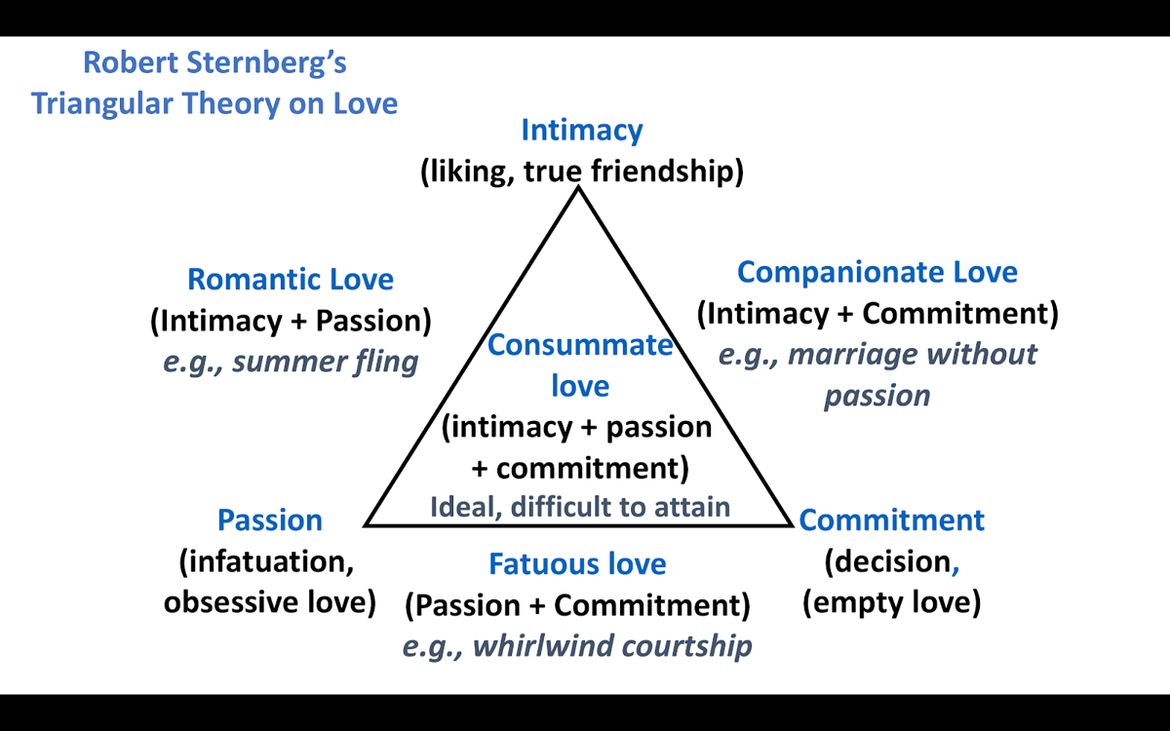How Do You Know You Are in Love?

Love is complicated. Is it passion? Companionship? Or maybe, a commitment? In today's blog, Dr. Grace defines what love is and shares valuable components of a loving relationship.
A student asked recently, “How do you know you're in love if you've never been in love before?”
It’s a profound question, one that has troubled poets and songwriters, Greeks and Romans, psychologists and politicians, Gen Z’ers and Millennials, and Bible believers everywhere. Let’s poll a brief sample of each and see if we can help answer this student’s question.
Poets and Songwriters
The best poet of all—Robert Browning said, “Breath and bloom, shade and shine,–wonder, wealth, and –how far above them–Truth, that’s brighter than a gem, Trust, that’s purer than pearl,–Brightest truth, purest trust in the universe– all were for me in the kiss of one girl.”
The wisest of all—King Solomon said, “May he kiss me with the kisses of his mouth! For your love is better than wine... On my bed night after night I sought him, Whom my soul loves; ... Your lips are like a scarlet thread... and your mouth is lovely…”
And the best lyricists of all time—Justin Timberlake said, "I got this feeling inside my bones, it goes electric, wavy when I turn it on."
Greeks and Romans
Both Greeks and Romans struggled with whether love was a decision of the mind or an affair of the heart. The Greeks got closest to the truth, in my opinion, using Agápe to mean an altruistic, unconditional, selfless love, and Philía as a love like a friend, a sister, or a brother. Éros is passion and romance, and Storgē is affection, like that of a parent to a child.
Then there is also the Latin fake love called Ludas, which is the sport or game-playing love, as well as Mania, which is a jealous, possessive love, and Pragma, a logical, rational kind of love.
So many loves…
Politicians and Psychologists
American politician Senator Edward Proxmire (1915-2005) wondered if anybody should scientifically study love. He once stated:
I object to this not only because no one—not even the National Science Foundation—can argue that falling in love is a science; I'm also against it because I don't want the answer. I believe that 200 million other Americans want to leave some things in life a mystery, and right on top of the things we don't want to know is why a man falls in love with a woman and vice versa.
Most research psychologists disagree, believing that we should try to figure out what love is, and even what love feels like. Many find evidence that love is a potent, chemical mix of oxytocin, dopamine, and serotonin that will knock you off your feet. At unhealthy levels, the mix of unpredictability, mystery, and sexual attraction makes the amygdala go into hyper-activation mode, like a brain on crack cocaine.
Yet, because of the complexities and so many different definitions and interpretations, you can very quickly find yourself in a muddled, complicated mess. One of my favorite theories that clears things up a bit is Robert Sternberg’s Triangular Theory of Love, which looks like this:

Generation Z’ers and Millennials
Benching, breadcrumbing, and ghosting are bad, as are love bombing and emergency calling. I think sliding into their DMs is fine, as is a DTR. Both Millennials and Gen Z's (the first true digital natives) find nothing wrong with relationships that start and blossom online. They are highly connected to others, use numerous messaging platforms, and are generally more comfortable using their phones for texting than for actually talking. Perhaps somewhat surprisingly, the majority in both generations still desire and plan to get married one day.
Bible Believers
“...I have loved you with an everlasting love; Therefore, I have drawn you with loving-kindness.” —Jeremiah 31:3
“Beloved, let us love one another, for love is from God; and everyone who loves is born of God and knows God.” —1 John 4:7
“The Lord’s loving-kindnesses indeed never cease, for His compassions never fail. They are new every morning; great is thy faithfulness.” —Lamentations 3:22-24
So, while not everyone may agree on what love is, here are some #Goals to help you determine if you are, in fact, in love.
Real love…
- Is patient.
- Is not addicted to emotional chemical highs
- Makes a commitment (marriage) before sex
- Is not jealous or insecure
- Seeks to serve rather than to be served
- Is not clingy
- Tries to be interested, not interesting
- Is not controlling
- Puts others first—not selfish, self-focused, or self-centered
- Is not abusive
- Seeks to understand, rather than be understood
- Does not manipulate you
- Does not ignore or dismisses significant compatibilities
- Does not compare you to others
- Does not demean, or make belittling comments
- Is kind
So, if you get a feeling inside your bones that goes electric and wavy, and you’re wondering if you may be in love, these statements may help. They show what love in action looks like, and what it should not look like. Of course, love will always remain just enough of a mystery to keep poets, songwriters, and psychologists very busy for a very long time.
To explore the topic of infatuation further, check out How Long Should Infatuation Last.




